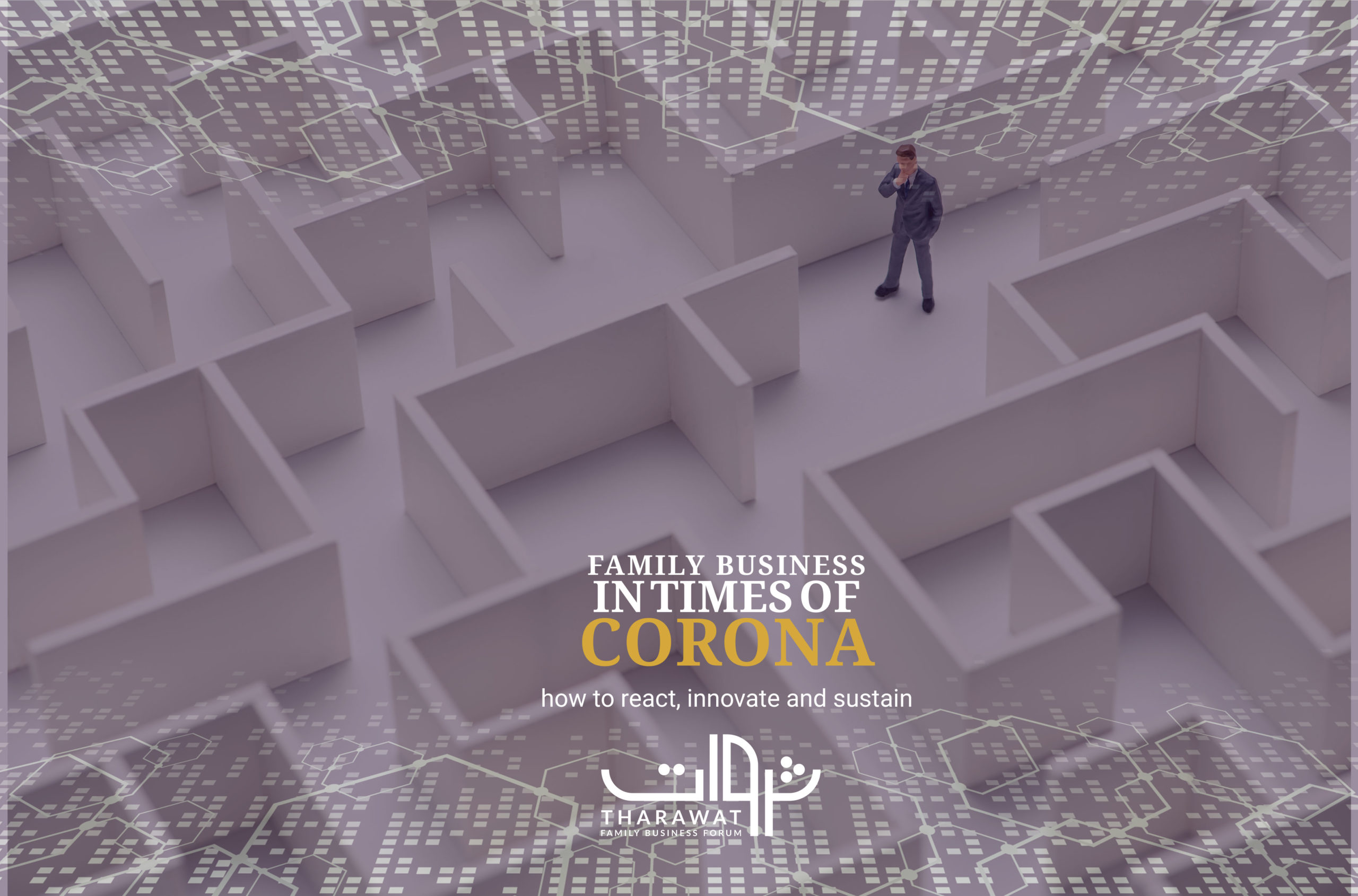
Opportunity in Challenges: Family Business as Usual?
By Adil Al Zarooni, CEO, Alzarooni Emirates Investments
These are extraordinary times. As the world grapples with a pandemic that will likely touch the lives of everyone, we must first acknowledge the tragic scope of the human cost it has already incurred, and do everything possible to support our families, friends and neighbours going forward. For family businesses, and more particularly for family businesses in the MENA, the implications of Coronavirus will likely mean significant operational and financial challenges.
The monetary toll on businesses could run into the billions [1]. The projected cost to the global economy currently sits at 2.7 trillion [2]. In response, the UK and the USA are introducing stimulus packages to mitigate the outbreak’s potential impact on economic growth [3] and we see similar moves all throughout the MENA. Additionally, targeted measures, such as interest relief on small loans, are being introduced to soften the pandemic’s detrimental effect on small businesses [4].
This is a sensible outlook, and in the face of the economic downturn, family firms should take the same measured, logical approach. In navigating these choppy waters, family businesses in the Gulf and beyond would be well served by keeping the following in mind:
Be patient.
In general, family businesses are not highly leveraged and therefore have the ability to weather short, or even long-term instability. That means avoiding rash decisions regarding investing or divesting until the markets become less volatile.
For family firms involved in real estate, weathering the storm might mean deploying long-term, cost-cutting strategies. The real estate sector will be affected on various fronts, however commercial, warehousing, and hospitality will most likely take the largest hit.
I believe family firms engaged in real estate should optimise so that they are running at the very minimum of their operational capacity until the end of the year. This strategy may seem defensive in the mid-term but has the potential to become decisively offensive when the market shifts, and family firms are well-positioned to take advantage of opportunities as they arise.
Maintain a robust supply chain.
Maintaining a robust supply chain and developing backup plans is important, but it won’t necessarily lead to fiscal benefit. The costs associated with keeping supply chains moving in spite of the crisis could ultimately be prohibitive. However, the effort may add significant value in terms of reputation.
Hold onto cash.
Cash-rich family businesses should hold onto that cash for the time being but remain open to possibilities when it comes to investments. Opportunities are developing on multiple fronts, public equities being the most obvious and accessible.
The correction markets are experiencing should present strong investing windows at the end of the upcoming summer. I believe family businesses should create a diversified portfolio of equity across US and Chinese markets using a professional asset manager.
Additionally, I would suggest family firms be on the hunt for private equity transactions either regionally, or globally depending on their scale and resources. I feel strongly about emerging small, and highly specialised funds that will leverage the current circumstances to create opportunities. It’s a great time to eye regional or multi-regional distressed assets that have the potential to pay off in five or seven years.
Acquire talent.
The time is ripe to secure new team members. Consumer-facing companies in hospitality, travel and the retail sector have already initiated the first wave of layoffs [5] in parts of the world not yet contending with the scope of disruption felt in Asia and Europe.
I believe now is the time for family firms to look at how they can bolster their business through strategic hiring. The talent options are only likely to increase, and the price-point is only likely to get more attractive.
This might be a slow year for the family business community in the Gulf and beyond. There will doubtless be challenges, but challenges are always accompanied by opportunities, and they don’t necessarily present themselves in obvious ways.
As other businesses contract, family firms are afforded more of something that for them is usually in very short supply: time. They should make good use of it, whether that means cleaning up their books, shoring up their legal positioning or streamlining their administrative protocols.
The business climate we’re currently experiencing is a temporary one, and family firms can do much to make sure its adverse effects don’t become permanent.
